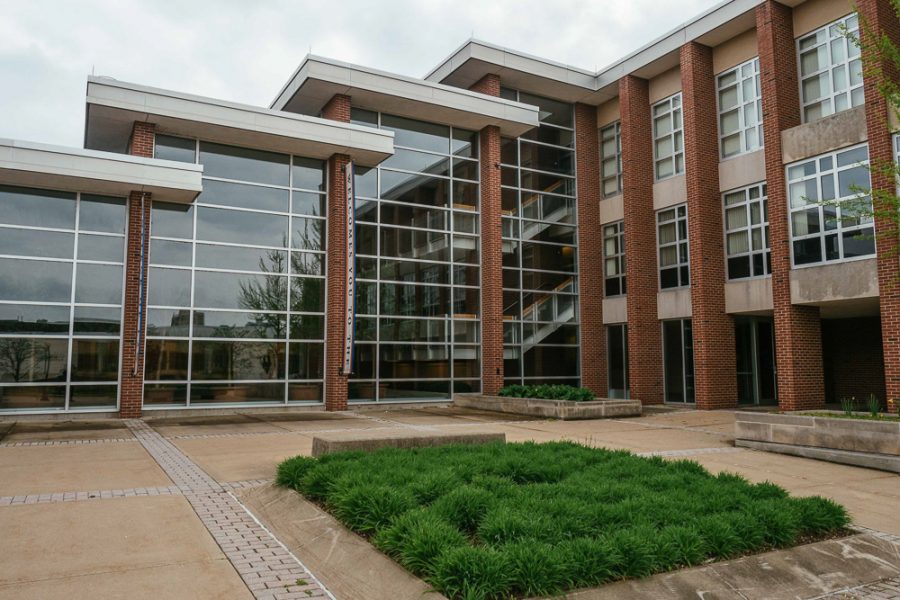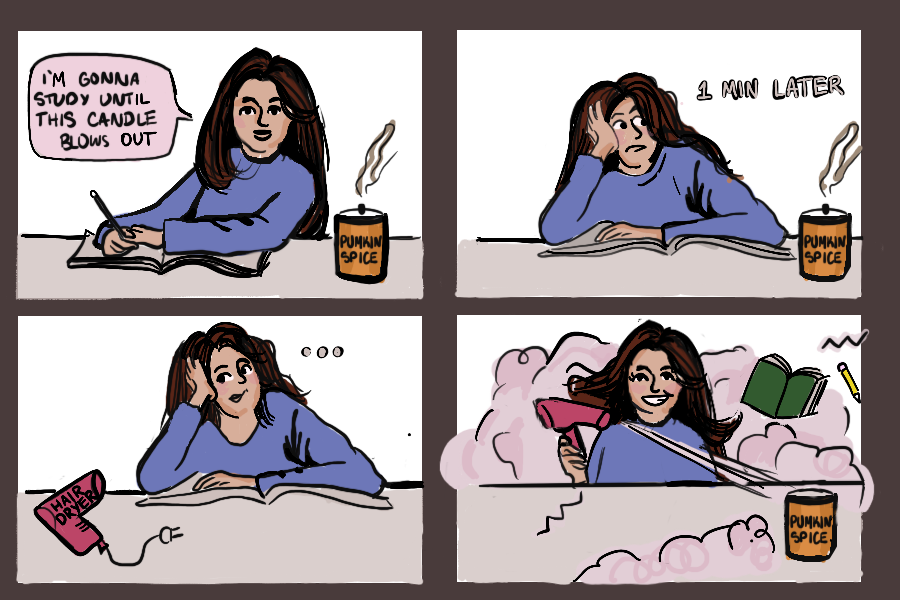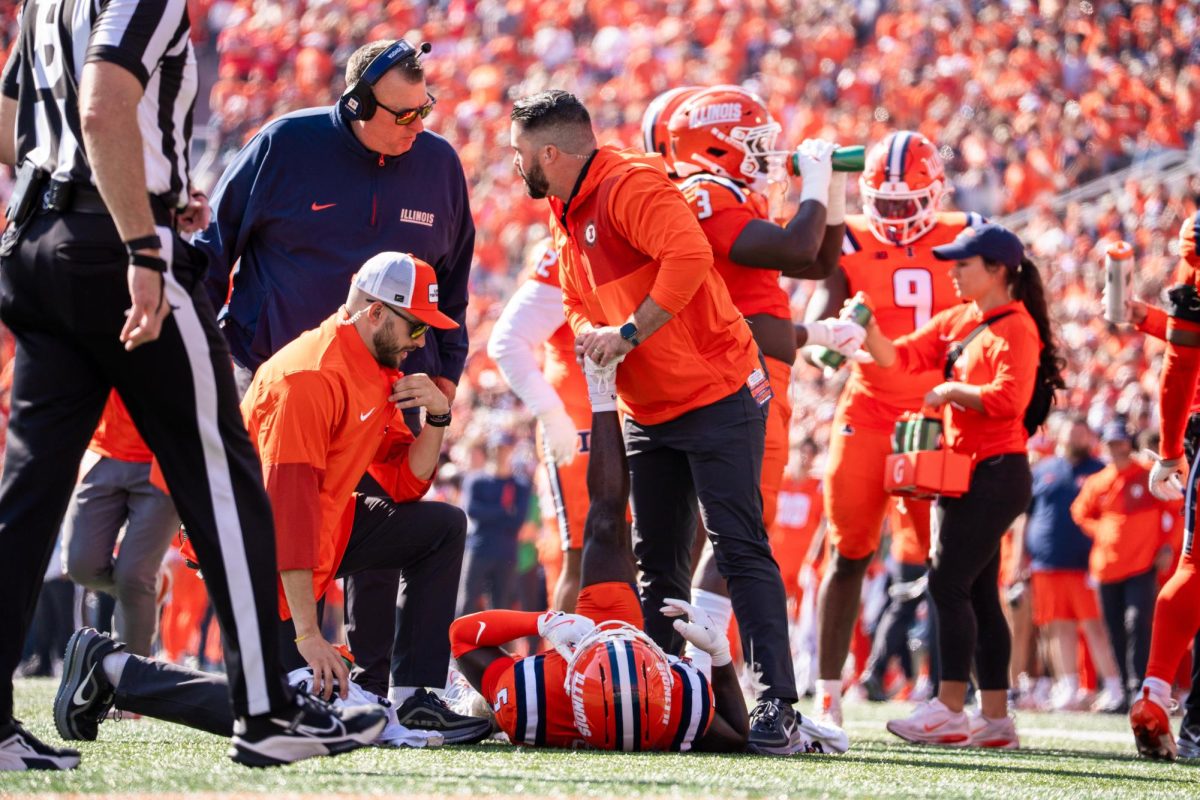The heat from the torch ignites every fan’s heart as it makes its journey around the globe. The light from the flame reflects the lifelong journey of athletes from every nation. And when these athletes enter a stadium full of thousands being televised in all corners of the world, they know their time has come.
This is the Olympic Games.
On Oct. 2, the International Olympic Committee (IOC) will decide in Copenhagen whether or not Chicago deserves to host the world’s greatest sporting event in 2016.
“I think the United States would not only do it well, but for the athletes, the city and the people, just the ability to come and watch your country compete in the Olympic Games on your home soil is an experience that I think we need right now,” said Justin Spring, an Illinois alumnus who won a bronze medal in gymnastics at the 2008 Beijing Olympic Games.
“With the economy being down and things like that, I think it’s almost an opportunity of a lifetime to be able to go and watch an Olympic Games in your own country.”
Get The Daily Illini in your inbox!
Chicago is up against stiff competition from the three other finalists: Madrid, Rio de Janeiro and Tokyo. The Chicago 2016 Committee is doing everything it can in the next few weeks to propel itself above the competition, including garnering support from the University.
“We’ve tried to make it clear to the committee, that if we can be involved somehow, some way, facility-wise, event-wise, however, we’d certainly be interested in being involved,” Illinois sports information director Kent Brown said.
Fourth time is the charm
On April 14, 2007, the United States Olympic Committee selected Chicago as the U.S. bid city — for the fourth time in the history of the Games.
In 1904, Chicago was actually awarded the bid, but the Games were moved to St. Louis to coincide with the 1904 World’s Fair. When news of the move to St. Louis was released, University of Chicago students nearly rioted and staged a huge bonfire on Marshall Field. Chicago bid again for the Games in both 1952 and 1956, failing both times.
But today, Chicago is an entirely different city.
With 20 Fortune 500 companies and 8 million tickets sold to sporting events each year in the metropolitan area, Chicago is much more capable now of being atop the world’s stage.
“There’s very few countries that can do it, and that can support it and can do it well,” Spring said, who argues Chicago would be the perfect location to showcase American values to the rest of the world.
Chicago has hosted the World’s Fair, World Cup soccer preliminary matches and U.S. presidential-nominating conventions but has yet to host a sporting event that advocates peace and cooperation as much as the Olympic Games do.
According to the Chicago 2016 committee’s Web site, “The plan envisions the Games interwoven into the sustainable landscape of Chicago’s century-old lakefront park system in a walking district that features the city’s most impressive cultural institutions, sports facilities and entertainment attractions.”
The IOC Evaluation Commission visited the four candidate cities late last spring and published its technical report on Sept. 2. The report did not reveal a favorite but criticized Chicago’s reluctance when it comes to financial guarantees.
The Chicago 2016 Committee declined an interview with The Daily Illini, saying they are too busy focusing on Oct. 2 to deal with any media at the moment.
In less than one month, the 107 voting IOC members will vote by secret ballot in successive rounds until one candidate city receives a majority of the votes cast. IOC members who represent a country still in the running must abstain from voting.
Orange and Blue support
As the state’s flagship institution, the University is searching for ways to get involved.
“The biggest asset that we have is really facilities that might be able to be used in some way,” Brown said. “I don’t think the University’s in a position to financially back (the bid). There might be the ability for personnel resources.”
University President B. Joseph White serves on Chicago 2016’s Steering Committee, which focuses on a variety of areas, including safety, diversity, transportation and governance. White, who attended the 1996 Olympic Games in Atlanta as an observer, was not available for comment because he remains focused on amending the University’s admissions scandal.
Meanwhile, University spokesman Tom Hardy believes the Games would stir up additional support at the University for sports that aren’t always in the spotlight, including volleyball and gymnastics.
“People, I think tend to focus on big university and big campus football and basketball programs but forget about high-aspirational student-athletes competing in Olympic sports,” Hardy said.
According to Spring, Beijing Normal University played a major role at the 2008 Summer Games, allowing alternates on Olympic teams to stay on its campus. The retired gymnast believes the University of Illinois could play a similar role.
“I definitely think we’re going to have quite a bit of involvement, whether it’s just volunteering time or support or media exposure,” he said.
But Brown remains hesitant in taking the University’s support further until the decision is announced.
“We do have obviously some experience in event management and game management, media relations, that sort of thing,” Brown said. “Once you take away from that, you take away from our core responsibilities here on campus, so I’m not sure what more we can do other than make it known that we’re interested and supporting.”
Spring thinks the tide will turn immediately if Chicago does get the bid.
“(The Olympics are) a big movement, and I think the University of Illinois is going to take a big standpoint in supporting it and doing some media things with it as soon as we find out it is official,” Spring said.
Hardy stressed not only Chicago’s proximity to Champaign but to the University’s Chicago and Springfield campuses as well. If anything, the University of Illinois-Chicago would be the first to get involved.
According to Hardy, the Games would provide a “collateral benefit for a lot of universities and institutions rippling beyond just the Chicago area.” He believes the University could team up with other schools, such as Wisconsin-Madison and Notre Dame, to provide the best environment possible for Olympic athletes.
Although the University has yet to launch any sort of official support, Spring has already been to Chicago to help with several fundraisers.
“A lot of getting the bid is really marketing,” Spring said. “It’s getting more people on board. I’m very proactive in speaking about it and talking about what it would do for the city and just how incredible it would be to host an Olympics in your home country.”
Many former Olympians hope to keep their connection with the Olympic movement by trying to bring the games back to the States.
“I know that if they were up north, I would be involved in some way, shape or form,” Spring said. “Whether it’d be spotting for NBC or doing something with USA Gymnastics because I’m so local. I would love to do that. That’d be incredible.”
And according to Spring, it will all be worth it.
“How incredible would it be to go to an Olympic Games two hours away?” Spring asked.





